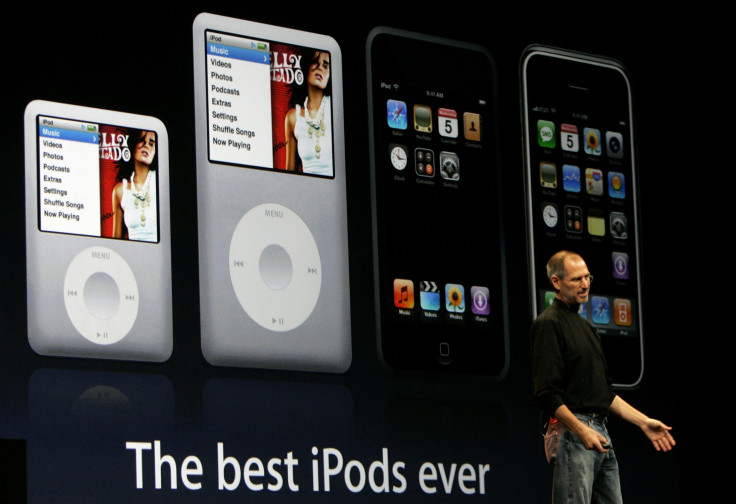In Apple iPod Class Action There Is Only One Certain Winner: The Lawyers

Apple is locked in a legal fight to determine if it broke antitrust laws and overcharged consumers millions of dollars for iPods sold in the late 2000s. But should the tech titan lose the case, it won’t be iPod owners who’ll make off with a big payday. It’ll be their lawyers.
The nearly decade-old class-action lawsuit accuses Apple of limiting consumers’ choice in digital music players by restricting them from loading music to their devices not purchased from iTunes or uploaded from a CD. Lawyers for the plaintiffs argue this allowed Apple to maintain high iPod prices and overcharge consumers by more than $350 million between late 2006 and early 2009.
Apple’s goal is to prove to jurors that any software modifications it made that restricted consumers’ options were solely for the purpose of improving the iPod experience. For the plaintiffs’ lawyers, the mission is to show that Apple’s music restrictions were put in place to maintain its dominance in digital music sales. That may not be too hard for the plaintiffs as the case will include evidence from late Apple CEO Steve Jobs in the form of years-old emails and a video deposition filmed before he passed away in 2011, and statements by Jobs have been successfully used against his company in other recent cases.
Last year, Apple lost a lawsuit over e-book price fixing with the judge at hand specifically citing quotes from Jobs as “compelling evidence.” In another class-action case involving anti-poaching policies among tech companies, a judge rejected a settlement from Apple and other companies, saying “there is substantial and compelling evidence that Steve Jobs was a, if not the, central figure in the alleged conspiracy.” And in this particular case, emails have already been released with more damning Jobs quotes.
“We may need to change things here,” the Apple co-founder said in a 2005 email after learning that a rival company was about to release software that would let consumers place non-iTunes music on their iPods. The email was presented Tuesday, according to Bloomberg.
Federal antitrust cases automatically provide for treble damages, so should the verdict go against Apple, the company stands to lose more than $1 billion. That’s not too much for Apple, which has more than $155 billion in cash, but it’s quite a bit of money for the rest of the world. In any case, most of it would go the lawyers representing the class action.
In class actions, lawyer payouts are determined by the courts based on various factors, such as the difficulty of the case, the amount of time spent, and how much money is recovered. If the plaintiffs win this case, it’s very likely their lawyers could make off with millions of dollars. Whatever is left over would go to the millions of consumers and hundreds of retailers and resellers involved in the class action, but it would likely be a negligible amount.
"Surely the lawyers are going to get a payday,” said Joseph Bauer, a professor of law at Notre Dame and an expert in antitrust. “And then some relatively small amount will go to each member of the class. Each member could be seeing a recovery of $5, $10 or $20, but it's not going to be very much.”
If Apple can defend itself successfully, the plaintiff lawyers will likely go home penniless. Regardless, the company is sure to fight the case vehemently.
Although Apple doesn’t stand to lose much financially, it has several reasons to take the case seriously, said Daniel Crane, a professor at the University of Michigan who teaches antitrust law. For starters, Apple is a public company and the goal of every public company is to constantly put out strong results. Losing a billion dollars won’t help that objective. More importantly, Apple is involved in several other legal cases, and it can’t risk having a judgment in the iPod antitrust litigation set legal precedents that could hurt it in the future.
"Right now the issue may be technology from six or seven years ago," Crane said, "but maybe they're concerned about the relationship between a product they sell and a service they sell in another space today.”
And finally, Apple this week gave an indication that it’s placed a high priority on not having its brand associated with being a monopoly. Despite reaching a $450 million settlement in the e-book case it lost last year -- again, that’s a puny amount for the Cupertino firm -- the company is going to appeal that ruling later this month. Apple software chief Eddy Cue this week said it’s important that Apple, under Jobs' successor Tim Cook, “fight for the truth” in the e-book case.
“Luckily, Tim feels exactly like I do which is: You have to fight for your principles no matter what,” Cue told Fortune. “Because it’s just not right.”
Apple probably feels the same about the iPod case. If the plaintiffs’ lawyers want their payday, Apple’s going to make them work for it.
© Copyright IBTimes 2025. All rights reserved.




















